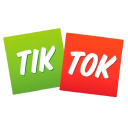How I Grew My Language Learning App To $7K/Month
Hello! Who are you and what business did you start?
I am Stefano Lodola, founder of Think in Italian, a language learning platform designed to help individuals master Italian through an immersive approach. What sets Think in Italian apart is the value of natural language acquisition, inspired by my belief that "we all master languages by listening and mimicking."
With a background in Industrial Engineering and an MBA in Strategy and Marketing, I’ve combined my technical expertise and passion for languages to create a unique learning experience that fills the gaps I encountered while mastering 13 languages.
At its peak in October 2023, my business was getting close to $10k MRR, then I got hit by Google and now I’m down to $5k.

How did you come up with your business idea?
I had been doing...





















